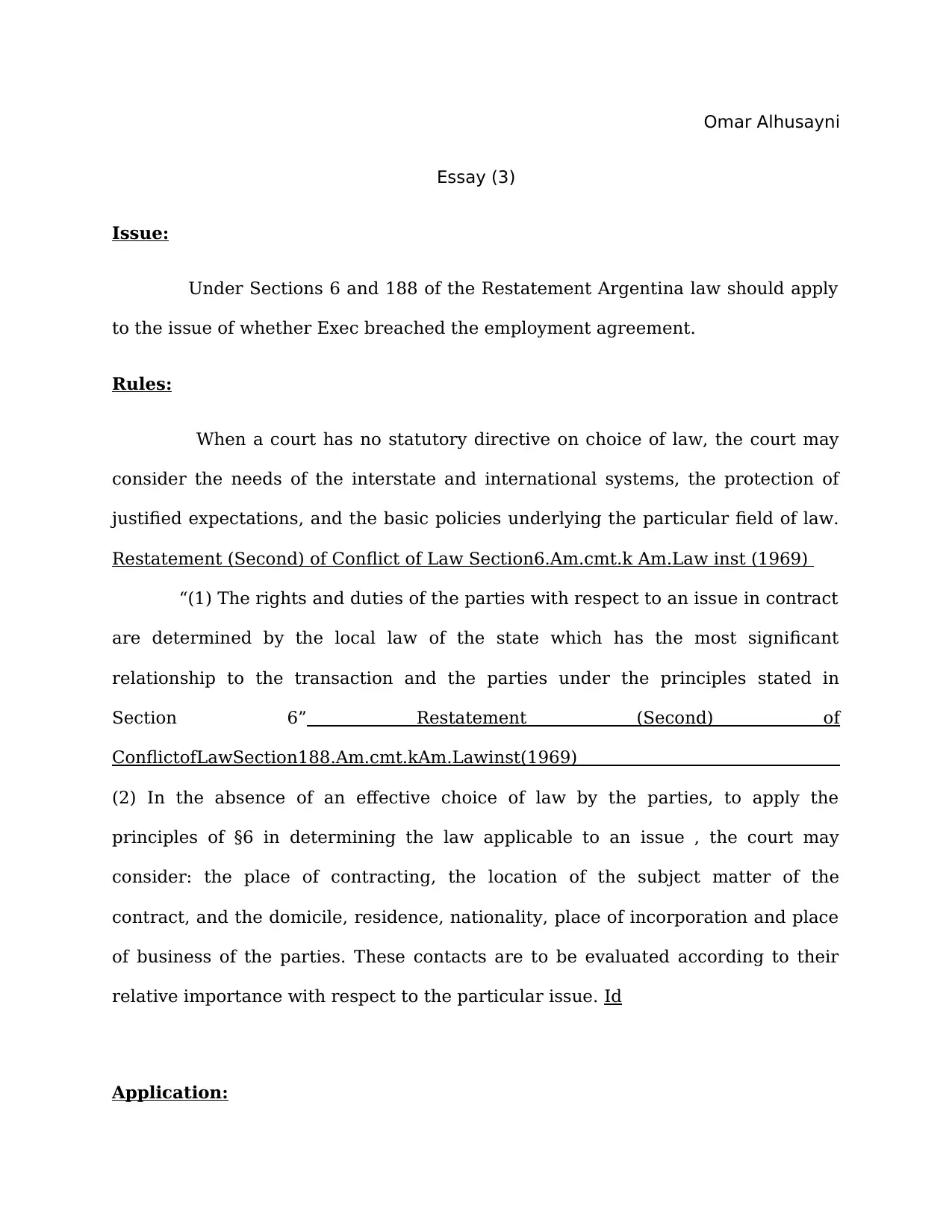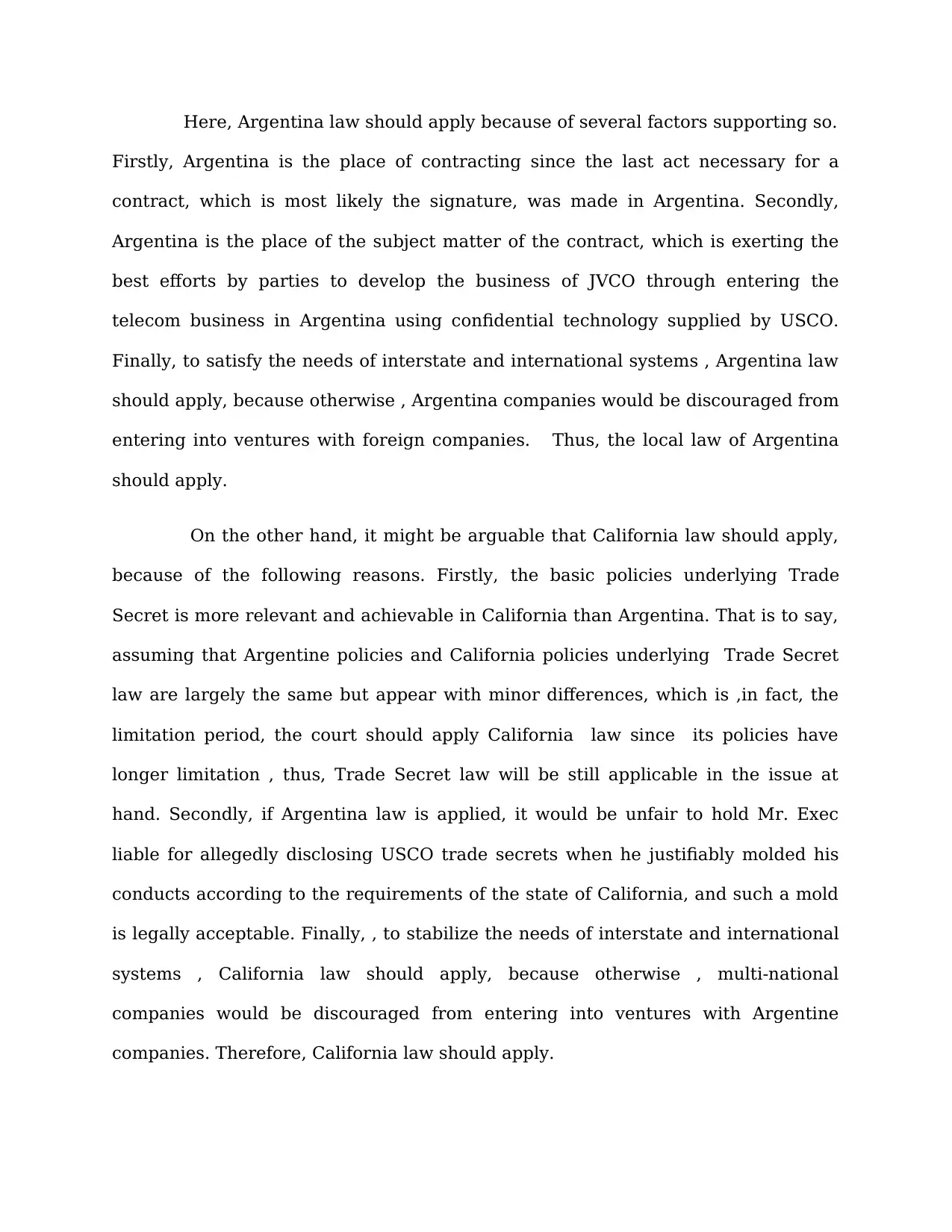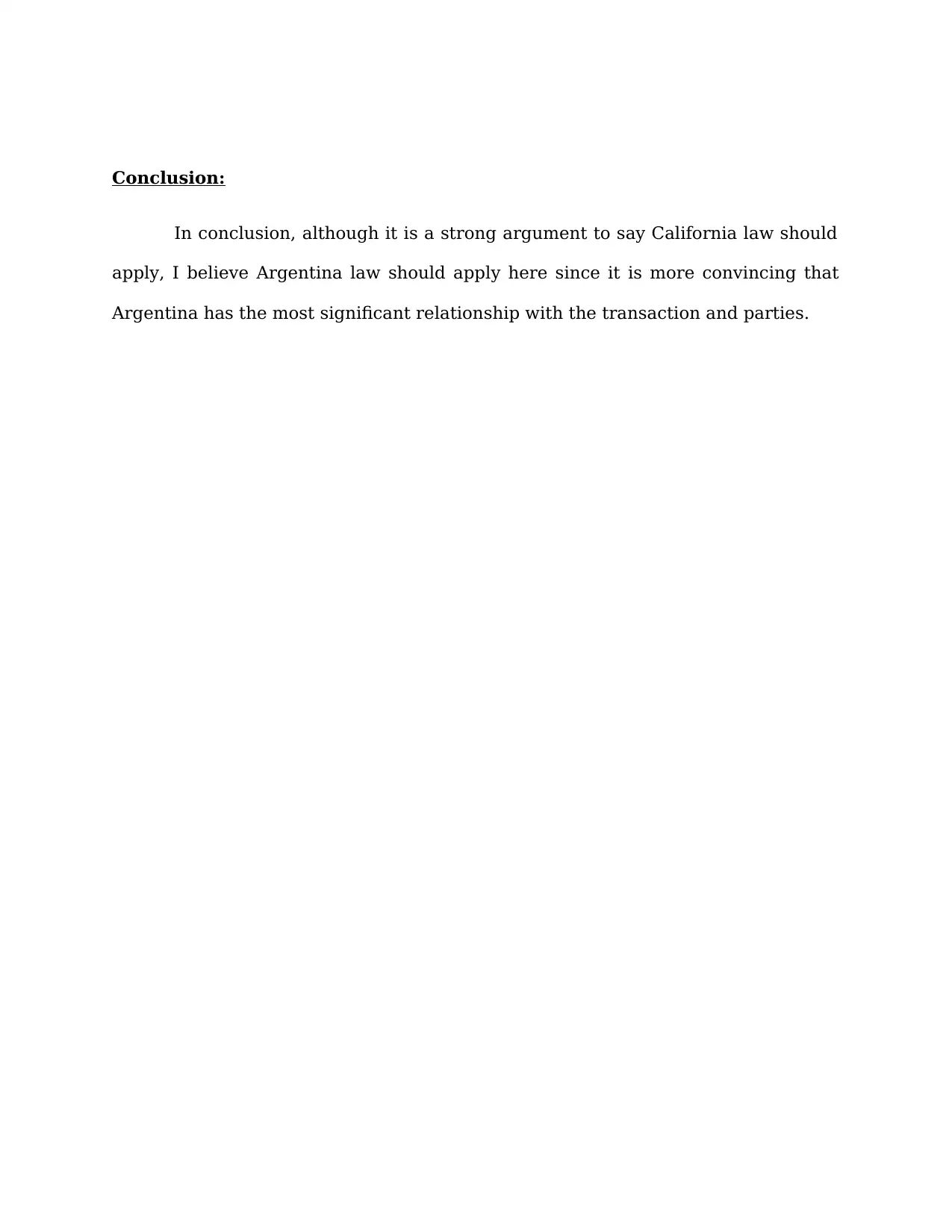Law Report: Analysis of Employment Agreement Dispute, Argentina Law
VerifiedAdded on 2019/09/25
|3
|597
|146
Report
AI Summary
This report analyzes a dispute arising from an employment agreement, focusing on the choice of law between Argentina and California. The analysis considers the Restatement (Second) of Conflict of Law, specifically Sections 6 and 188, to determine the jurisdiction with the most significant relationship to the transaction and parties involved. The report argues for the application of Argentina law, emphasizing factors such as the place of contracting, the location of the subject matter, and the needs of international systems. However, it also acknowledges the counter-argument for California law, highlighting the relevance of trade secret policies and fairness considerations. Ultimately, the report concludes that Argentina law should apply due to its stronger connection to the transaction and parties involved, providing a detailed examination of legal arguments and the rationale behind the conclusions.
1 out of 3










![[object Object]](/_next/static/media/star-bottom.7253800d.svg)